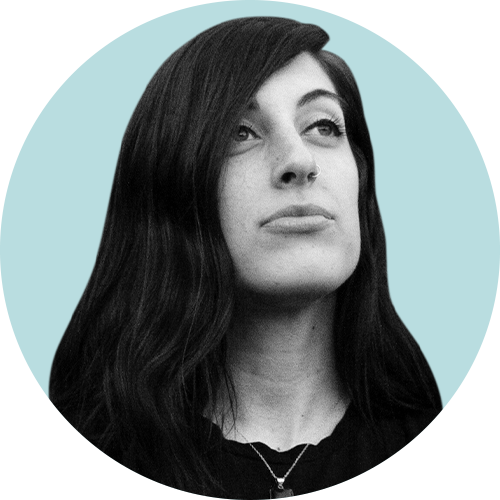We asked Dr. Adeline Kikam about her work in dermatology and passion for health equity in dermatology and skin care for People of Color.
| | | Presented by | |  | | | | |
| | | | Happy Friday! You've probably noticed we've been talking about skin care a lot lately. Well, buckle up, because we're capping off the week with an interview with Adeline Kikam, DO, FAAD, the dermatologist and creator behind social media account @brownskinderm. For her insights on skin care, keep on reading. | | In addition to our Q&A with Dr. Kikam, we talk about: | | | | Be well,
Morgan Mandriota
Newsletter Editor, Healthline | | | | |
| |  | | Written by Morgan Mandriota
September 23, 2022 • 6 min read | | | | | | | |
| |  | | Best known for Brown Skin Derm on Instagram and TikTok, Dr. Adeline Kikam is a board certified dermatologist who works with and advocates for People of Color, their skin health, and access to skin health care. Between her social media work, lectures, and serving on advisory boards, she's working hard to smash stereotypes and address inequities in healthcare. | | We asked Dr. Kikam about how she got her start, the impact of her work so far, and more. Check out our Q&A below. | | Q: | Tell us about your journey: How did you get started in skin care and dermatology? And what inspired you to start your social media account @brownskinderm? | | | A: Naturally in medical school, I was drawn to dermatology as a specialty, given my personal struggles with my skin. I struggled with acne growing up — not just on my face but on my chest and back. The hyperpigmentation that came with my acne was a double blow to my self-image. | | I struggled back then with finding information on how to care for my skin as a Black woman — what products to use, what to avoid, why Black skin was so prone to hyperpigmentation, and so on. I decided to create @brownskinderm, a platform that will include us (People of Color) in conversations about dermatologic conditions that predominantly affect darker skin tones. | | I also wanted to use the platform to encourage conversations that force us to evaluate how we define beauty … and how the medical community studies and treats conditions that affect People of Color. | | Q: | Your page has evolved since launching in 2017. How has it changed over time? | | | A: My platform has evolved to be more meaningful and recognizable. I not only discuss medical conditions but elective aesthetic procedures, offer sunscreen suggestions that are suitable on darker skin tones, review medical-grade cosmeceutical products, and feature other dermatologists and organizations that advocate for Communities of Color. | | I also work with brands to articulate their needs so that skin and hair care offerings are more inclusive. I talk freely about my journey and struggles as a Black woman in one of the least diverse subspecialties in medicine. It's impactful in terms of inspiring minority medical students to pursue dermatology — one of the most competitive specialties in medicine to get into but certainly not impossible. |  | | Q: | What are some misconceptions about skin care that you hope to dispel? | | | A: Black and Brown people have increased melanin that offers some measure of protection from the sun's harmful rays, but it is not all-protective as many would like to believe. Overexposure to UV radiation can induce DNA damage resulting in sunburns and premature aging, worsen hyperpigmentation by overstimulating melanin production, and cause skin cancers. | | I have also come across many people who still believe people with brown skin are not candidates for procedures such as lasers and chemical peels, which is not true. While those with brown skin are more prone to adverse effects from these procedures, such as scarring and hyperpigmentation, their brown skin does not completely disqualify them from it. | | Q: | Skin care has become a huge movement. What are your thoughts on the rapid growth in this field? | | | A: I think people are becoming more empowered to pay attention to their skin needs, and it's great. Our skin, after all, is the largest organ and people have taken it for granted for a long time. At the same time, we cannot ignore the hyper-commercialization and consumerism that comes with the skin care movement. I think information on skin care needs to be accessible and affordable across all social classes and not come off as elitist and exploitative. | | | | | | |
| | | | Products we love | | | | | | |  | | ILIA Beauty True Skin Serum Foundation | | Do you have a hard time finding a foundation that matches your skin color? Consider ILIA Beauty's True Skin Serum Foundation, which comes in 25-plus shades. This medium coverage, natural finish, buildable product has been reformulated and boosted with ingredients like niacinamide and allantoin to help smooth and soothe your skin, no matter your skin type. | | Bonus perks: It's dermatologist-tested, safe for sensitive skin, fragrance-free, cruelty-free, and vegan! Convinced but not sure which shade to pick? Try the Find My Shade quiz on ILIA's website. | | | | | | | | | | |
| |  | | | Why do many men avoid going to the doctor? | Cleveland Clinic's 2019 MENtion It men's health survey found that 72% of men would rather clean a toilet than go to the doctor, and 65% report avoiding going as long as possible. And a May 2022 online survey conducted by The Harris Poll for Orlando Health found that one-third of men don't think they need annual health screenings. Clearly, many men don't like going to the doctors. But why?!
Many reasons — fear, stigma, thinking they're "supermen," not having a primary doctor, financial concerns, not wanting to be vulnerable about health concerns, etc. Whatever the reason, not going to the doctor can put off diagnosis and treatment of health issues. "Patients that are diagnosed at an early stage have a much better prognosis than those who show up too late at the doctor," Dr. Nikola Djordjevic told Healthline.
An increased focus on men's health is helping men take their health seriously, which can lead to an increase in going to the doc. But what can we do to help in the meantime? If you have a loved one who avoids doctors, Djordjevic recommends offering to join them so they feel supported. Start off small by scheduling an annual screening, then go from there. The sooner they go, the better.
PS: If you're uninsured or underinsured and cost is delaying your visit to a doctor's office, resources are available. Learn more about finding free or low cost healthcare near you. | | | | | | |
| | | | | | On Wednesday, we asked what makes you feel young despite your age. Here's what some of you had to say. | | "A good night's sleep and laughter." — Helen W. | | "An hour workout five days a week. Stretches seven days a week. Reasonably healthy diet. Good friends. Attending my church each week. A family that lets me live my life yet keeps very close contact. Whenever the weather permits, laps in a pool. I am very fortunate to have good health at eighty years plus. It is work, but so worth it." — Morris D. | "I'm 69 years old but I still feel half that. I exercise and do yoga every day. I meditate daily and watch my diet. But I also don't buy into the thinking of myself as old or elderly. I don't mind aging but I just don't worry or think about it much. It's your mental attitude that makes the difference."
— Debra E. | | Thanks for taking the time to respond to our poll. We loved reading your answers. Look out for another one next Wednesday! | | | | | | |
| | | | Thanks for reading! What was your favorite story that we shared this week? Let us know at wellnesswire@healthline.com. Have a great weekend, and we'll see you on Monday!
| | | | | | |
| | | | | | | Until next time, |  | Take care of yourself, and we'll see
you again soon! | | |  | | |  | | This edition was powered by | daydreams of everyone getting
the health info they deserve. | | | | | | | View in browser
Did a friend send you this email? Subscribe here.
To see all newsletters, click here.
Privacy | Unsubscribe
© 2022 Healthline Media
1423 Red Ventures Drive, Fort Mill, SC 29707 | | | | |   | | |
No comments:
Post a Comment